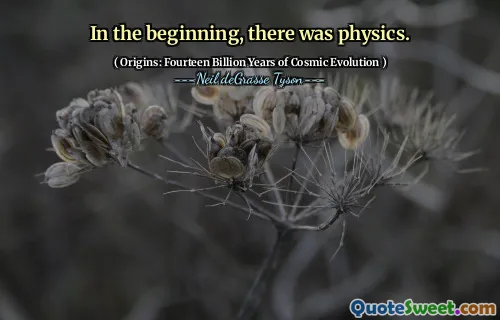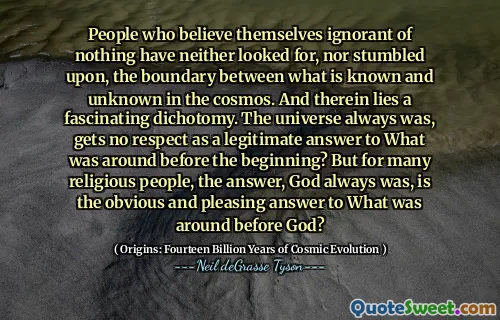
In the beginning, there was physics.
Neil deGrasse Tyson's statement, "In the beginning, there was physics," encapsulates the profound idea that the fundamental laws of physics are the foundational narrative of our universe. This perspective invites us to view the cosmos not merely as a collection of stars, planets, and galaxies but as an intricate tapestry woven together by the laws governing matter, energy, space, and time. Recognizing physics as the starting point emphasizes that understanding the universe from its inception requires delving into the principles that dictate cosmic evolution. From the moments after the Big Bang to the formation of complex structures like galaxies and life itself, physics serves as the constant thread that explains every phenomenon achievable in our universe. It offers a lens through which we can decipher the origins of existence, the expansion of the universe, and the subtle interactions that sustain reality as we observe it. As science progresses, it continually reveals the elegance and simplicity underlying seemingly complex phenomena, illustrating that the universe operates under comprehensible laws. Tyson’s remark also subtly highlights the importance of scientific inquiry and curiosity—encouraging us to look beyond superficial appearances and seek the underlying physics that drive cosmic history. This standpoint fosters a greater appreciation for the natural world and our place within it, reminding us that profound understanding begins with grasping the fundamental principles of physics. Ultimately, recognizing that "there was physics" from the beginning underscores the timeless quest for knowledge that unites us across generations in our effort to comprehend the universe's deepest mysteries.







